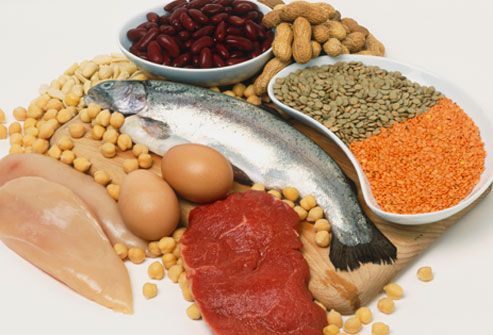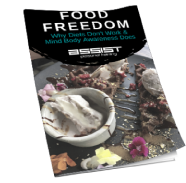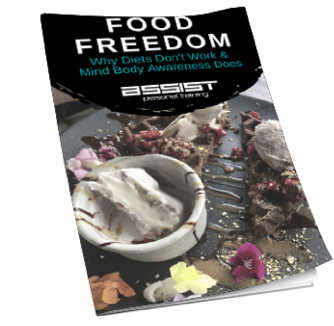 Protein is most commonly known for its ability to help prevent muscle loss and improve mood, sleep, athletic performance and weight loss. It’s important for tissue repair, nutrient absorption and muscle protein synthesis but we need protein for hormones, detoxification and our cells. The body will use it for this before using it to gain lean mass. Your body needs 20 different amino acids to grow and function optimally. Though all 20 of these are important for your health, only 9 amino acids are classified as essential. Essential Amino Acids (EAA’s) are important because they can not be made in the body, we actually need to source our EAA’s through food. Amino acids are vital for optimal health and when trying to see a change in body composition so making sure we get all essential amino acids from our protein is quite important.
Protein is most commonly known for its ability to help prevent muscle loss and improve mood, sleep, athletic performance and weight loss. It’s important for tissue repair, nutrient absorption and muscle protein synthesis but we need protein for hormones, detoxification and our cells. The body will use it for this before using it to gain lean mass. Your body needs 20 different amino acids to grow and function optimally. Though all 20 of these are important for your health, only 9 amino acids are classified as essential. Essential Amino Acids (EAA’s) are important because they can not be made in the body, we actually need to source our EAA’s through food. Amino acids are vital for optimal health and when trying to see a change in body composition so making sure we get all essential amino acids from our protein is quite important.
The 9 Essential Amino Acids
These 9 essential amino acids can’t be produced by our body and must be obtained through our diet, commonly found in animal proteins. The other 11 amino acids are considered to be essential only under specific circumstances such as illness or stress. The nine essential amino acids at the core of many vital processes in the body are:
1. Phenylalanine: Phenylalanine is a precursor for the neurotransmitters tyrosine, dopamine, epinephrine and norepinephrine. It plays an integral role in the structure and function of proteins and enzymes and the production of other amino acids. Vegan sources can be sourced from soybeans, pumpkin seeds, squash seeds.
2. Valine: Valine is one of three branched-chain amino acids. Valine is important for building and repairing muscle cells and is involved in energy production. Vegan sources can be sourced from oats, soybeans, buckwheat groats, pumpkin seeds and navy beans.
3. Threonine: Threonine is a principal part of structural proteins such as collagen and elastin, which are important components of the skin and connective tissue. It also plays a role in fat metabolism and immune function. Vegan sources can be found in soy protein isolate, spirulina, rice protein isolate, pea protein isolate and chlorella.
4. Tryptophan: Though often associated with causing drowsiness, tryptophan has many other functions. It’s needed to maintain proper nitrogen balance and is a precursor to serotonin, a neurotransmitter that regulates your appetite, sleep and mood. Vegan sources are sesame seeds, sunflower seeds, pumpkin seeds and butternut squash seeds.
5. Methionine: Methionine plays an important role in metabolism and detoxification. It’s also necessary for tissue growth and the absorption of zinc and selenium, minerals that are vital to your health. Vegan sources can be found in brazil nuts (best source), spinach, hemps seeds, sesame seeds and oats.
6. Leucine: Like valine, leucine is a branched-chain amino acid that is critical for protein synthesis and muscle repair. It also helps regulate blood sugar levels, stimulates wound healing and produces growth hormones. Vegan sources can be found in soybeans, oats, spinach, adzuki beans, lentils, mung beans, kidney beans, black beans and peanuts.
7. Isoleucine: The last of the three branched-chain amino acids, isoleucine is involved in muscle metabolism and is heavily concentrated in muscle tissue. It’s also important for immune function, hemoglobin production and energy regulation. Vegan sources can be found in oats, soybeans, lentils, lima beans and buckwheat groats.
8. Lysine: Lysine plays major roles in protein synthesis, hormone and enzyme production and the absorption of calcium. It’s also important for energy production, immune function and the production of collagen and elastin. Vegan sources can be found in soybeans, adzuki beans, lentils and oats.
9. Histidine: Histidine is used to produce histamine, a neurotransmitter that is vital to immune response, digestion, sexual function and sleep-wake cycles. It’s critical for maintaining the myelin sheath, a protective barrier that surrounds your nerve cells. Vegan sources can be found in rice, wheat, rye, seaweed, beans, legumes, cantaloupe, hemp seeds, chia seeds, buckwheat, potatoes, cauliflower and corn.
Complete Protein Sources
Foods that contain all nine essential amino acids are referred to as complete proteins. These sources come from animals, animal products, soy and some plant based foods. Examples of complete protein sources include:
- Meat – choose grass fed ideally purchased from a farm butcher local to you
- Seafood – ideally wild caught
- Poultry – hormone and chemical free
- Eggs – free range or organic
- Whey Protein Isolate – great if diary does not cause an inflammatory response for you
- Dairy Products – as above. Avoid if dairy causes you digestive issues. Work on improving your gut health first
- Soy – less processed, organic sources
- Quinoa
- Buckwheat
- Nutritional Yeast Flakes
Other plant based sources of protein like beans and nuts are considered incomplete as they lack one or more of the essential amino acids but when combined with grains, like rice, they too become a complete protein., If you’re following a plant based diet, you can still ensure proper intake of all essential amino acids as long as you eat a variety of plant proteins each day. Choosing a variety of incomplete proteins such as beans, nuts, seeds, whole grains and vegetables can ensure that your essential amino acids are met, even if you choose to exclude animal products from your diet. If you are not getting in a variety of plant based proteins or you also suffer with a gluten allergy or sensitivity and have to avoid some whole grains or seitan, which is also known as “wheat meat”, then supplementing with Leucine and BCAA’s might be worthwhile for you.
Protein to Improve Body Composition
Studies have shown that increasing the concentration of EAA’s and/or Branched Chain Amino Acids (BCAA’s) will most likely result in better insulin metabolism and faster improvements in body composition to help produce more muscle and reduce body fat. Branched Chain Amino Acids are a group of three essential amino acids: Leucine, Isoleucine and Valine. These amino acids are found in eggs, meat and other foods that contain protein while Essential Amino Acids are found in white meat, fish and legumes.
Leucine is particularly important when it comes to creating a change in body composition. It’s the most anabolic BCAA which is great for activating mTOR. Diets rich in leucine also promote healthier blood glucose and insulin responses which is important for correcting carb sensitivity however too much leucine can increase the production of insulin so it’s important to only supplement with what your body actually needs. The richest known sources of leucine come from a high quality Whey Protein Isolate (WPI) but if you are sensitive to dairy or opposed to the consumption of animal products, then BCAA’s have been proven to be just as rich as WPI. Another option is to supplement with EAA’s or eating a whole range of foods containing a variety of EAA’s, if changing body composition is one of your goals. If you’re not consuming a large variety of plant foods or complete protein sources, OR your goal is to increase lean mass, then supplementing with around 2-3g of Leucine plus about 5g of BCAA’s will fulfil the requirements to make an incomplete protein complete and stimulate muscle protein synthesis (MPS) for muscle growth. Leucine can be obtained from the following supplements:
- WPI (approx 3459mg per serve)
- BCAA (approx 2250mg-5000mg per serve)
- EAA (approx 1250mg-2500mg per serve)
Foods high in leucine are cheese, soybeans, beef, chicken, pork, pumpkin seeds and tuna. Supplementing with a quality B6 supplement like Pyridoxal 5 Phosphate can also act as a cofactor for all amino acids to be converted in the body. The purpose of this article is to help you understand the importance of protein and how you can consume quality sources of it to help speed up body composition results and improve general wellness. There is a whole lot more to this topic too so when it comes to nutritional advice, please seek advice from a health professional before making any changes to your diet. Individual needs vary from person to person based on many different factors.

References: Jenkins TA, Nguyen JC, Polglaze KE, Bertrand PP. Influence of Tryptophan and Serotonin on Mood and Cognition with a Possible Role of the Gut-Brain Axis. Nutrients. 2016;8(1):56. Published 2016 Jan 20. doi:10.3390/nu8010056 Markus, C.R., Firk, C., Gerhardt, C. et al. Psychopharmacology (2008) 201: 107. https://doi.org/10.1007/s00213-008-1254-0 Yurcheshen M, Seehuus M, Pigeon W. Updates on Nutraceutical Sleep Therapeutics and Investigational Research. Evid Based Complement Alternat Med. 2015;2015:105256. Mohajeri, M., Wittwer, J., Vargas, K., Hogan, E., Holmes, A., Rogers, P., . . . Gibson, E. (2015). Chronic treatment with a tryptophan-rich protein hydrolysate improves emotional processing, mental energy levels and reaction time in middle-aged women. British Journal of Nutrition, 113(2), 350-365. doi:10.1017/S0007114514003754 Reduced muscular fatigue after a 12-week leucine-rich amino acid supplementation combined with moderate training in elderly: a randomised, placebo-controlled, double-blind trial. Reule CA, Scholz C, Schoen C, Brown N, Siepelmeyer A, Alt WW.BMJ Open Sport Exerc Med. 2016; 2(1):e000156. Epub 2017 Mar 8. EAA supplementation to increase nitrogen intake improves muscle function during bed rest in the elderly Ferrando, Arny A. et al. Clinical Nutrition , Volume 29 , Issue 1 , 18 – 23 Dudgeon WD, Kelley EP, Scheett TP. In a single-blind, matched group design: branched-chain amino acid supplementation and resistance training maintains lean body mass during a caloric restricted diet. J Int Soc Sports Nutr. 2016;13:1. Published 2016 Jan 5. doi:10.1186/s12970-015-0112-9 Stoppani J, Scheett T, Pena J, Rudolph C, Charlebois D. 2009 international society of sports nutrition conference and expo new orleans, la, USA. 14-15 june 2009. Abstracts. J Int Soc Sports Nutr. 2009;6 Suppl 1(Suppl 1):P1-P19. Published 2009 Jul 31. doi:10.1186/1550-2783-6-S1-P1 Daiana Vianna, Gabriela Fulin Teodoro Resende, Francisco Leonardo Torres-Leal, Lucas Carminatti Pantaleão, Jose Donato, Julio Tirapegui, Long-term leucine supplementation reduces fat mass gain without changing body protein status of aging rats, Nutrition, Volume 28, Issue 2, 2012, Pages 182-189, ISSN 0899-9007, https://doi.org/10.1016/j.nut.2011.04.004 Tessari P, Lante A, Mosca G. Essential amino acids: master regulators of nutrition and environmental footprint?. Sci Rep. 2016;6:26074. Published 2016 May 25. doi:10.1038/srep26074 Wu, G. Amino Acids (2009) 37: 1. https://doi.org/10.1007/s00726-009-0269-0 Ananieva E. Targeting amino acid metabolism in cancer growth and anti-tumor immune response. World J Biol Chem. 2015;6(4):281-9. National Center for Biotechnology Information. PubChem Compound Database; CID=6140, https://pubchem.ncbi.nlm.nih.gov/compound/6140. National Center for Biotechnology Information. PubChem Compound Database; CID=6287, https://pubchem.ncbi.nlm.nih.gov/compound/6287. National Center for Biotechnology Information. PubChem Compound Database; CID=6288, https://pubchem.ncbi.nlm.nih.gov/compound/6288. National Center for Biotechnology Information. PubChem Compound Database; CID=6305, https://pubchem.ncbi.nlm.nih.gov/compound/6305. National Center for Biotechnology Information. PubChem Compound Database; CID=6137, https://pubchem.ncbi.nlm.nih.gov/compound/6137. National Center for Biotechnology Information. PubChem Compound Database; CID=6106, https://pubchem.ncbi.nlm.nih.gov/compound/6106. National Center for Biotechnology Information. PubChem Compound Database; CID=6106, https://pubchem.ncbi.nlm.nih.gov/compound/6106. National Center for Biotechnology Information. PubChem Compound Database; CID=5962, https://pubchem.ncbi.nlm.nih.gov/compound/5962. National Center for Biotechnology Information.





